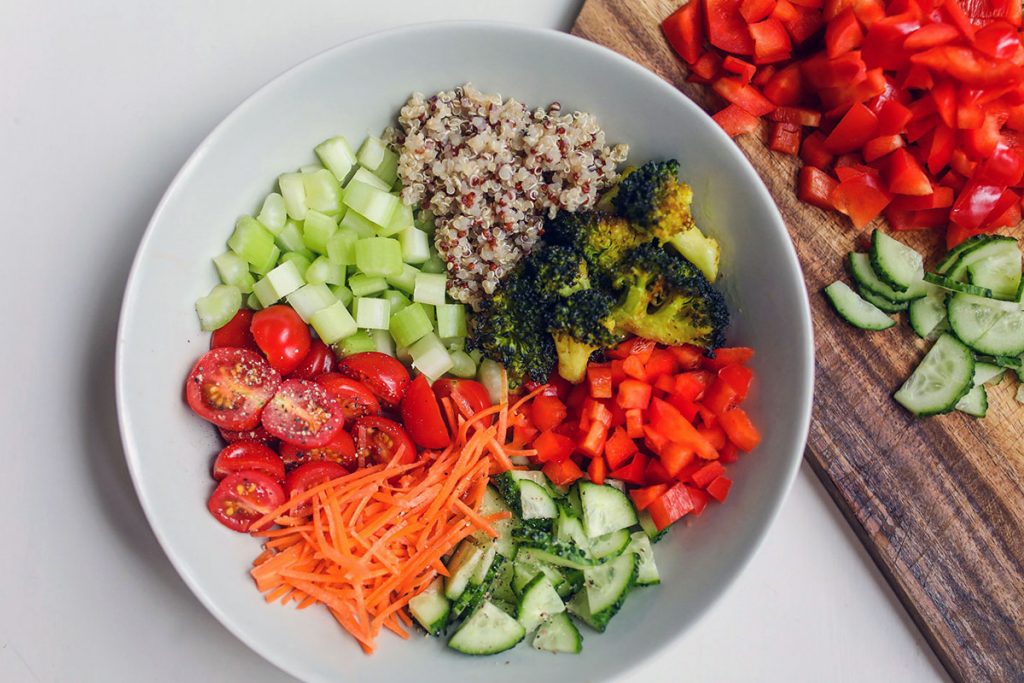
Listen to your belly. Is your body communicating with you? Are you constipated, bloated, have diarrhea, cramps or food sensitivities? This is our body telling us that something is wrong. You could be hindering your lymphatic system from doing its job properly. Managing these four areas of your diet and nutrition will help improve your lymphedema.
Recognizing inflammation
One important job of the lymphatic system is to remove products of inflammation. If you are sensitive or allergic to broccoli for example, your body will react by producing inflammation. To reduce the workload of the lymphatic system, look at the foods you are eating and assess whether they are healthy for you. Your body will give you signs that a certain food is not good for you. Start by keeping a food journal to figure out which foods agree with you and which cause unwanted symptoms.
Understanding fats
Our bodies have lymphatic drainage capabilities in our digestive system. In the small intestine we have a type of tissue that looks like a shag carpet and it lines the intestine on the inside of our bowels. These finger-like structures contain lymphatic vessels called lacteals which facilitate the transport of long chain fatty acids (dietary fat and fat soluble vitamins) to the blood. That’s a lot of work for the lymphatic system to do when we eat a high fat meal. People with sluggish lymphatic systems might benefit from a low-fat diet with the idea of lessening the workload for the lymphatic system.
Medium and short chain fatty acid bypass the lymphatic system reducing the overall workload for our bodies. Coconut oil and palm kernel oil are examples of fats that are high in medium chain fatty acids. In one study, medium chain triglycerides (MCTs) were even found to lower cholesterol and weight in diabetic rats so there are benefits all around. However, it is important to be sure that the liver can handle the extra work as it is responsible for metabolizing this type of short and medium chain fatty acids. In summary people with lymphatic issues may be able to benefit from a low fat diet or a higher fat diet if the source of fats are MCTs. Some people might be sensitive to MCTs and would need to avoid them or consume them in small quantities. Always consult with your doctor and nutritionist before implementing changes to your diet.
Maintaining an optimal weight
Obesity is a risk factor for lymphedema and weight increase is proven to negatively impact lymphedema. Obesity is the leading cause of lymphedema in North America. In clinical practice we see improvements in lymphedema with weight loss. The extra fat in the tissues can slow the lymphatic flow out of the tissues as they have a congestive and inflammatory effect on the environment. Maintaining an optimal body weight is recommended by experts in the field of Lymphology. Our blog on exercise tips for lymphedema can also help you maintain your weight.
Staying hydrated
Furthermore, we should be monitoring our salt, alcohol, and water intake as these can all have an effect on lymphedema. When we eat too much salt the extra salt will gather in our tissues and attract water which will make the lymphedema worse. When we drink alcohol the tiny muscles in our lymphatic vessels become weakened and will slow down the transport of fluid out of our tissues. We need to drink enough fluid on a daily basis to encourage lymphatic flow. If we don’t have enough water then our body will send signals to retain water exacerbating the problems. Drink enough water every day to meet your individual needs.
In conclusion listen to your belly! It has a lot to say. Working with your doctor and nutritionist as a team can get you on the right track to better lymphatic health through nutrition.
Denise Drisdelle is a registered massage therapist and co-founder of FLOW Lymphatic Health Services.